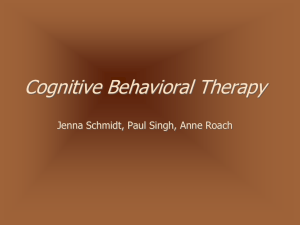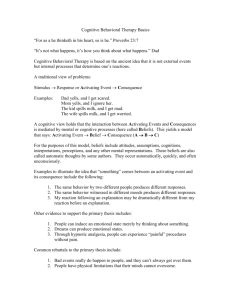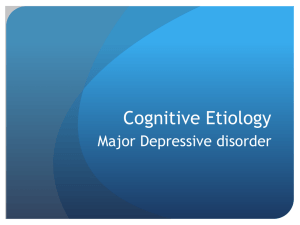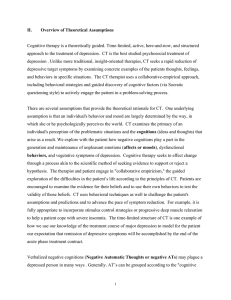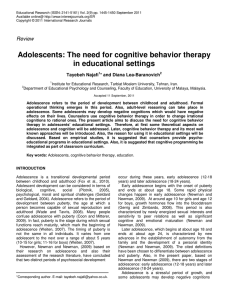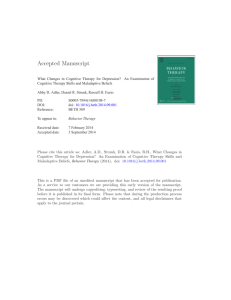Beck`s dysfunctional thinking explanation
advertisement
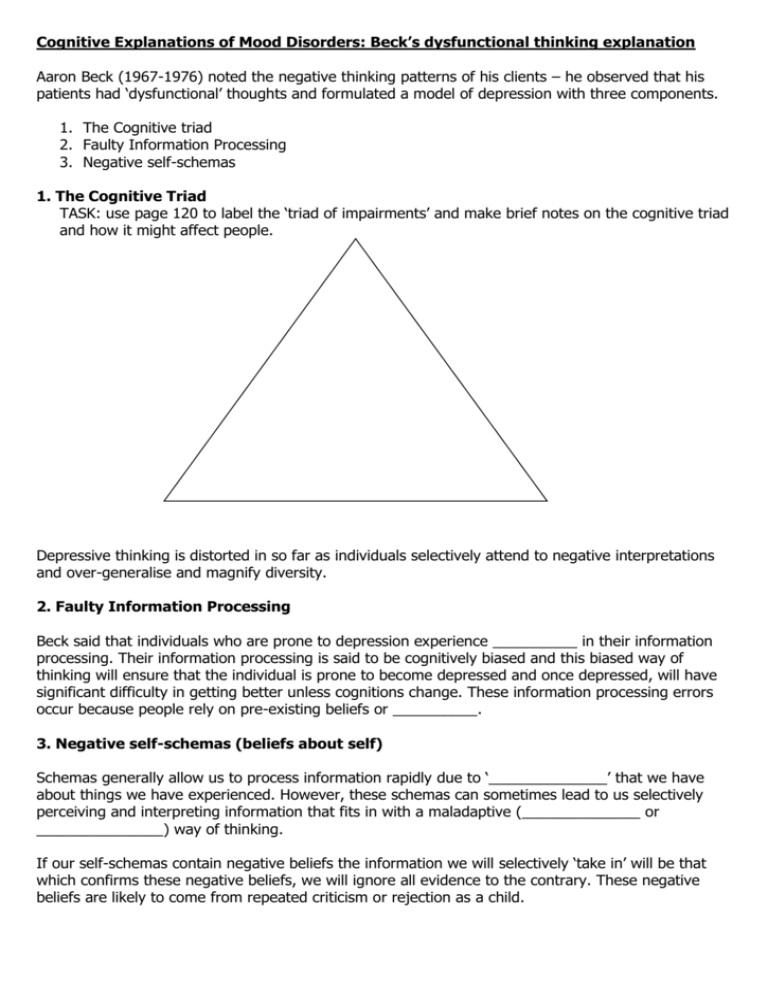
Cognitive Explanations of Mood Disorders: Beck’s dysfunctional thinking explanation Aaron Beck (1967-1976) noted the negative thinking patterns of his clients – he observed that his patients had ‘dysfunctional’ thoughts and formulated a model of depression with three components. 1. The Cognitive triad 2. Faulty Information Processing 3. Negative self-schemas 1. The Cognitive Triad TASK: use page 120 to label the ‘triad of impairments’ and make brief notes on the cognitive triad and how it might affect people. Depressive thinking is distorted in so far as individuals selectively attend to negative interpretations and over-generalise and magnify diversity. 2. Faulty Information Processing Beck said that individuals who are prone to depression experience __________ in their information processing. Their information processing is said to be cognitively biased and this biased way of thinking will ensure that the individual is prone to become depressed and once depressed, will have significant difficulty in getting better unless cognitions change. These information processing errors occur because people rely on pre-existing beliefs or __________. 3. Negative self-schemas (beliefs about self) Schemas generally allow us to process information rapidly due to ‘______________’ that we have about things we have experienced. However, these schemas can sometimes lead to us selectively perceiving and interpreting information that fits in with a maladaptive (______________ or _______________) way of thinking. If our self-schemas contain negative beliefs the information we will selectively ‘take in’ will be that which confirms these negative beliefs, we will ignore all evidence to the contrary. These negative beliefs are likely to come from repeated criticism or rejection as a child. You need an example of a negative self-schema to help you explain what it is in an essay for example. Pg 121 in your books has an example to do with exams, add the information to the diagram below OR think of your own negative self-schema. A negative self-schema Summary All of these dysfunctional beliefs do not necessarily lead to depression; the individual will become depressed, according to Beck’s model, only if they encounter a critical life event. This event will then trigger dysfunctional assumptions and biased information processing that will result in symptoms of depression. Evaluation (-) it is difficult to ascertain whether negative thinking plays a causal role in depression (-) Damasio (2000) used neuro-imaging techniques to show that emotional processing can occur before cognitive processing. This suggests that emotions might be controlling cognitions rather than the other way around. This means Beck’s cognitive theory is incomplete because there is a need to accommodate the role of emotion in our cognitive responses (-) The focus on internal cognitions also minimises the impact of environmental and social contexts in which people live (-) Eysenck and Keene (2000) concluded that there is only mixed evidence for biased information processing in depressed individuals January 2010 ppq 5 (a) Briefly discuss how cognitive psychologists have explained mood disorders. (4 marks)



